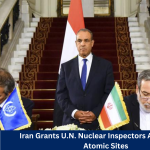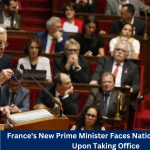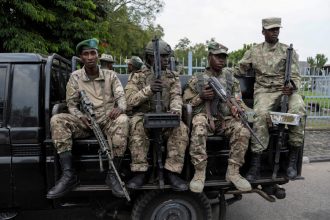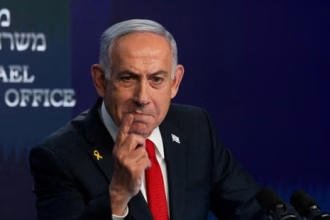South African Minister Criticized After Alleged Racial Slur has become a central issue in the nation’s political and social discourse. The controversy surrounding the minister’s alleged remarks has not only ignited public outrage but also sparked a heated debate about racial sensitivity, accountability in leadership, and the challenges of reconciliation in a country still deeply scarred by its apartheid past.
The incident, which has been widely reported across national and international media, raises pressing questions: how should public officials conduct themselves in a diverse democracy? What is the impact of racial slurs on social unity? And will this controversy reshape the political landscape in South Africa?
This article explores the background of the allegations, reactions from political parties and civil society, the historical context of race relations in South Africa, and the broader implications for leadership, governance, and reconciliation.
The Alleged Incident
According to reports, the South African minister allegedly used a racial slur during a private discussion that was later leaked to the public. While the details of the conversation remain contested, multiple witnesses and recordings suggest that the minister referred to individuals in derogatory racial terms.
The phrase, allegedly uttered during a policy meeting, quickly spread on social media, fueling outrage and anger across racial and political lines. Critics argue that such language—whether intentional or offhand—cannot be tolerated, especially from someone in a position of national leadership.
The minister, however, has denied the allegations, claiming the reports are mischaracterizations of the conversation and politically motivated attacks aimed at discrediting his reputation.
Public Outrage and Social Media Backlash
The alleged racial slur triggered immediate backlash on platforms such as Twitter, Facebook, and Instagram. Hashtags condemning the minister trended across the country, with thousands of South Africans demanding accountability.
Civil society groups, particularly organizations focused on racial equality and human rights, condemned the alleged remarks. Many called for the minister’s resignation, arguing that tolerance for such language undermines the principles of a democratic and inclusive society.
One activist group issued a statement: “In a nation where the scars of apartheid still run deep, any use of racial slurs by public officials cannot be excused. It is not merely a word—it is a weapon that wounds communities and undermines reconciliation.”
Political Reactions
Political reactions were swift and divided. Opposition parties seized the opportunity to criticize the ruling government, accusing it of fostering a culture of impunity among senior officials.
The leader of a prominent opposition party stated: “South Africa deserves leaders who build bridges, not those who inflame racial divisions. If these allegations are true, the minister has no place in government.”
Within the ruling party, responses have been mixed. Some members defended the minister, calling the controversy a “media witch hunt,” while others admitted the allegations raise serious concerns about the image of the government and its commitment to equality.
Historical Context: Race Relations in South Africa
To understand why the alleged racial slur has provoked such outrage, it is essential to revisit South Africa’s painful history of racial segregation and oppression.
Apartheid, the state-sanctioned system of racial discrimination that ended in 1994, left deep social, economic, and political divisions. Even today, nearly three decades after the transition to democracy, South Africa continues to grapple with systemic inequality and unresolved racial tensions.
Words matter deeply in this context. Racial slurs are not merely offensive—they are reminders of a brutal system that dehumanized millions of people. For many South Africans, hearing a minister accused of using such language is a painful reminder of the wounds that never fully healed.
The Role of Accountability in Leadership
Leadership in a diverse democracy requires not just political skill but also moral authority. When a public figure is accused of using a racial slur, it undermines the credibility of the office they hold.
Experts argue that South Africa’s leaders must be held to higher standards of accountability. Professor Sipho Dlamini, a political analyst, noted: “Public trust is fragile. When leaders are accused of racial insensitivity, it damages the legitimacy of institutions and risks deepening divisions.”
The question now is whether accountability will be enforced through formal investigations, parliamentary hearings, or calls for resignation.
Media Coverage and International Attention
The story has gained traction beyond South Africa’s borders, with international outlets reporting on the controversy as an example of the global challenge of racism in politics.
Foreign media highlighted the irony of a South African minister—representing a nation often praised for its transition to democracy—facing such allegations. Some commentators compared the incident to similar controversies in other countries, where racial slurs have ended political careers.
Legal and Ethical Implications
While the use of a racial slur may not necessarily result in legal consequences, it does carry significant ethical and political implications. South Africa’s constitution enshrines the right to equality and dignity, and any language that undermines these values is considered deeply problematic.
Legal experts argue that while prosecution may be unlikely, political accountability mechanisms—such as parliamentary censure, disciplinary action, or public apologies—are likely to follow.
Broader Implications for South Africa
The controversy is not just about one minister. It reflects deeper societal issues, including persistent inequality, racial mistrust, and the struggle to build a truly inclusive democracy.
If left unaddressed, incidents like this can erode public confidence in institutions and fuel cynicism about the government’s commitment to transformation. On the other hand, decisive action—such as holding leaders accountable—could strengthen South Africa’s democratic values and reassure citizens of the nation’s commitment to justice and equality.
FAQs
What happened with the South African minister accused of using a racial slur?
The minister allegedly used derogatory language during a private conversation, which was later leaked to the public, sparking widespread outrage and political debate.
Has the minister admitted to using the racial slur?
No. The minister has denied the allegations, calling them politically motivated attacks.
How have South Africans reacted to the alleged incident?
Public outrage has been widespread, with many civil society groups and opposition parties demanding accountability and even resignation.
What does this controversy mean for South Africa’s politics?
It raises serious concerns about racial sensitivity in leadership and could affect public trust in government institutions.
Why are racial slurs considered so damaging in South Africa?
Given the country’s apartheid history, racial slurs are reminders of systemic oppression and discrimination, making them especially harmful in today’s context.
Conclusion
South African Minister Criticized After Alleged Racial Slur has become more than just a political scandal—it is a mirror reflecting the challenges South Africa continues to face in building a society based on respect, equality, and unity.
As the controversy unfolds, the nation watches closely to see whether accountability will be enforced and whether the minister will face consequences. More importantly, the incident raises broader questions about how South Africa deals with race, leadership, and the enduring legacy of its past.
Words can wound, but they can also heal. In a society where language played such a powerful role in oppression, it must now play a role in reconciliation. South Africa’s leaders—and citizens—must decide which path they will choose.


















